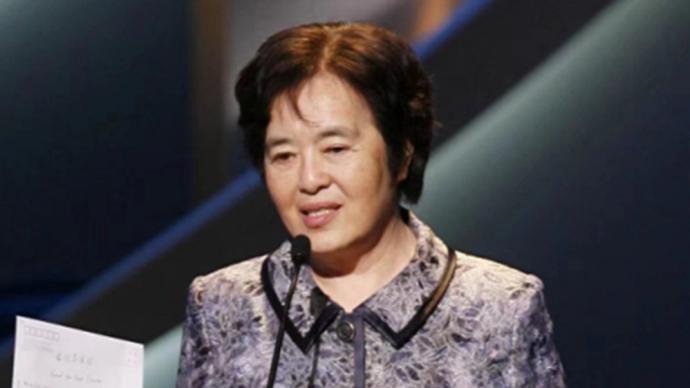
Regarding the funeral arrangements, his son Zheng Dasheng said that during the special period, everything should be kept simple and no mourning activities will be arranged for the time being. The Shanghai International Film Festival announced on the same day that some representative works of director Huang Shuqin will be shown during this year's film festival.
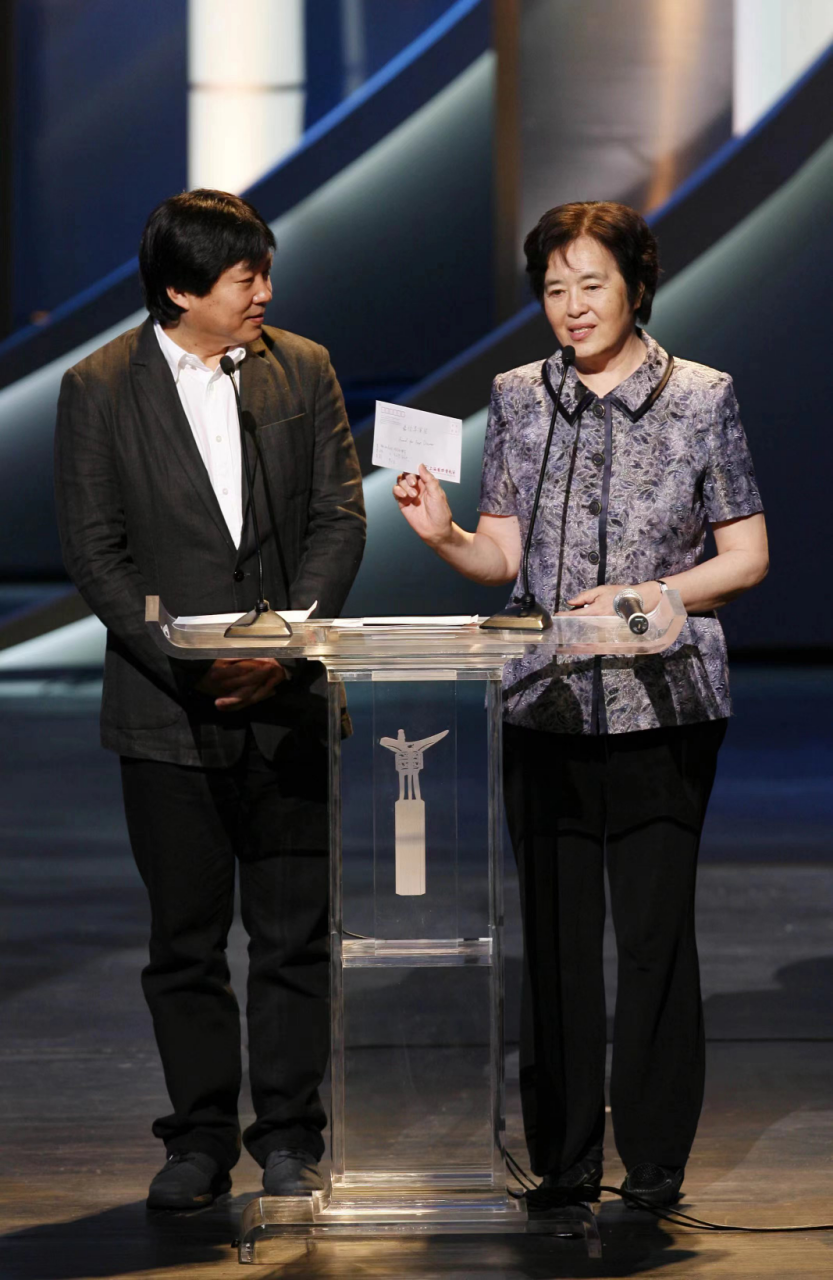
In 2008, at the 11th Shanghai International Film Festival, director Huang Shuqin presented the Best Director Award as the guest of honor.
As a film director, Huang Shuqin, like the "fourth generation" she belongs to, generally has a short creative life, and has been delayed in her best youth. It is already middle-aged when she really starts filming. After the short golden period of the 1980s, Chinese films in the 1990s began to face the double impact of TV and overseas films, and the market awareness was beginning to emerge, which also made the creators of this era face confusion and restrictions.As a fourth-generation director and a representative of Chinese women's films, Huang Shuqin has left behind many classic film and television works with high artistic standards, such as "Human, Ghost, Love", "Long Live Youth", "Painting Soul", "Besieged City" and "Debt". Women's outstanding imagination and profound exploration have become the director's distinctive artistic mark.
There have been unique high starting points, helpless untimely moments, incisive and hearty expressions, and regrets that have to be admitted after hitting the southern wall. Although director Huang Shuqin has not shot many works in his life, it is a Chinese film. An indispensable touch of soft and gorgeous brilliance.
I can do anything as long as I can see the camera
The fate of Huang Shuqin and the movie was decided long ago.
She came from a literary and artistic family. Her father, Huang Zuolin, and her mother, Jin Yunzhi, are young artists who have returned from studying abroad. Such family backgrounds have roots in traditional Chinese culture, and they have been influenced by Western enlightenment thoughts. These are from the works of Huang Shuqin later. All can see clues.
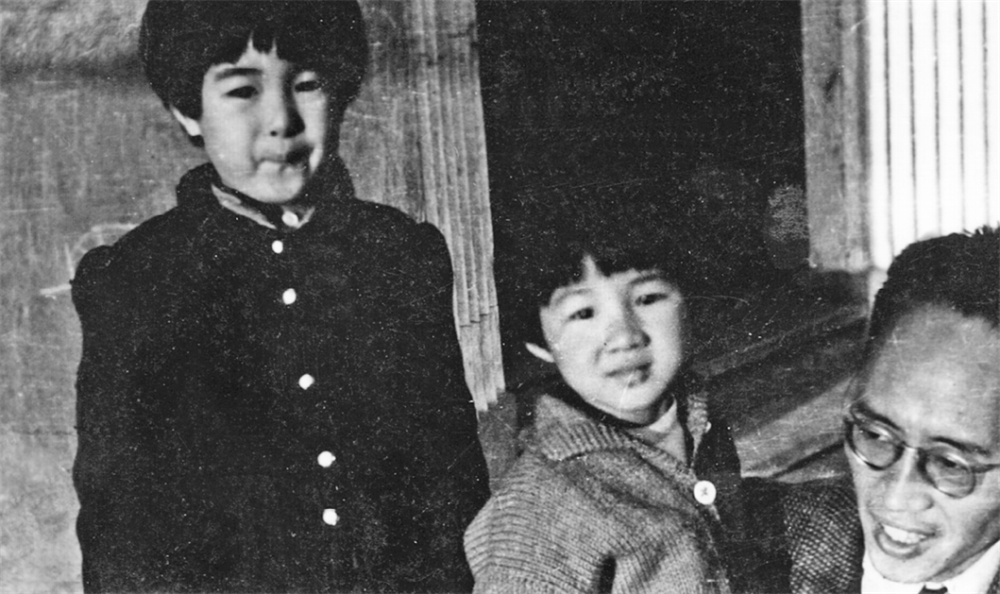
Young Huang Shuqin (left), Huang Haiqin and his father Huang Zuolin.
Needless to say, I have been immersed in literature and art since childhood. When she was 8 years old, she was "electrically shocked" for the first time and filmed "No Love" by Wenhua Film Company. The director was Sang Hu, the screenwriter Zhang Ailing, and the big stars Liu Qiong and Chen Yanyan were her "parents" in the film. Because Huang Shuqin is of the same age and can play the piano well, he has become the perfect choice for the role.However, when Huang Zuolin conveyed the "invitation" to the crew on his behalf, she even refused directly. It was all due to the invitation of the fathers to eat delicious food, and Huang Shuqin finally agreed when she saw the glorious parents in the play. Many years later, she went to work in Shanghai Film Studio. Whenever she saw Liu Qiong, she would still call her "Dad".
After the release of "No Love", it was a sensation, and Zhang Ailing and Sang Hu, a pair of writer-director partners, once became a scene that could not be ignored in the Chinese film industry in the 1940s. Huang Shuqin is also often recognized on the street, which makes her introverted "too late to escape". Although she thought, "Never act again" after this experience, the charm of the movie has been deeply imprinted in her heart. Thinking that "Dad is also a man who doesn't talk much, but he can be a director", Huang Shuqin set his goals early in adolescence.
In 1957, Huang Shuqin graduated from high school and decided to go to Beijing Film Academy with all his strength. Unexpectedly, the Beijing Film Academy did not enroll students that year, and Huang Shuqin cried in frustration. Determined to learn to be a film director, she simply responded to the call to go to the countryside to exercise and live. Two years later, I finally got my wish and entered the school gate of Nortel.
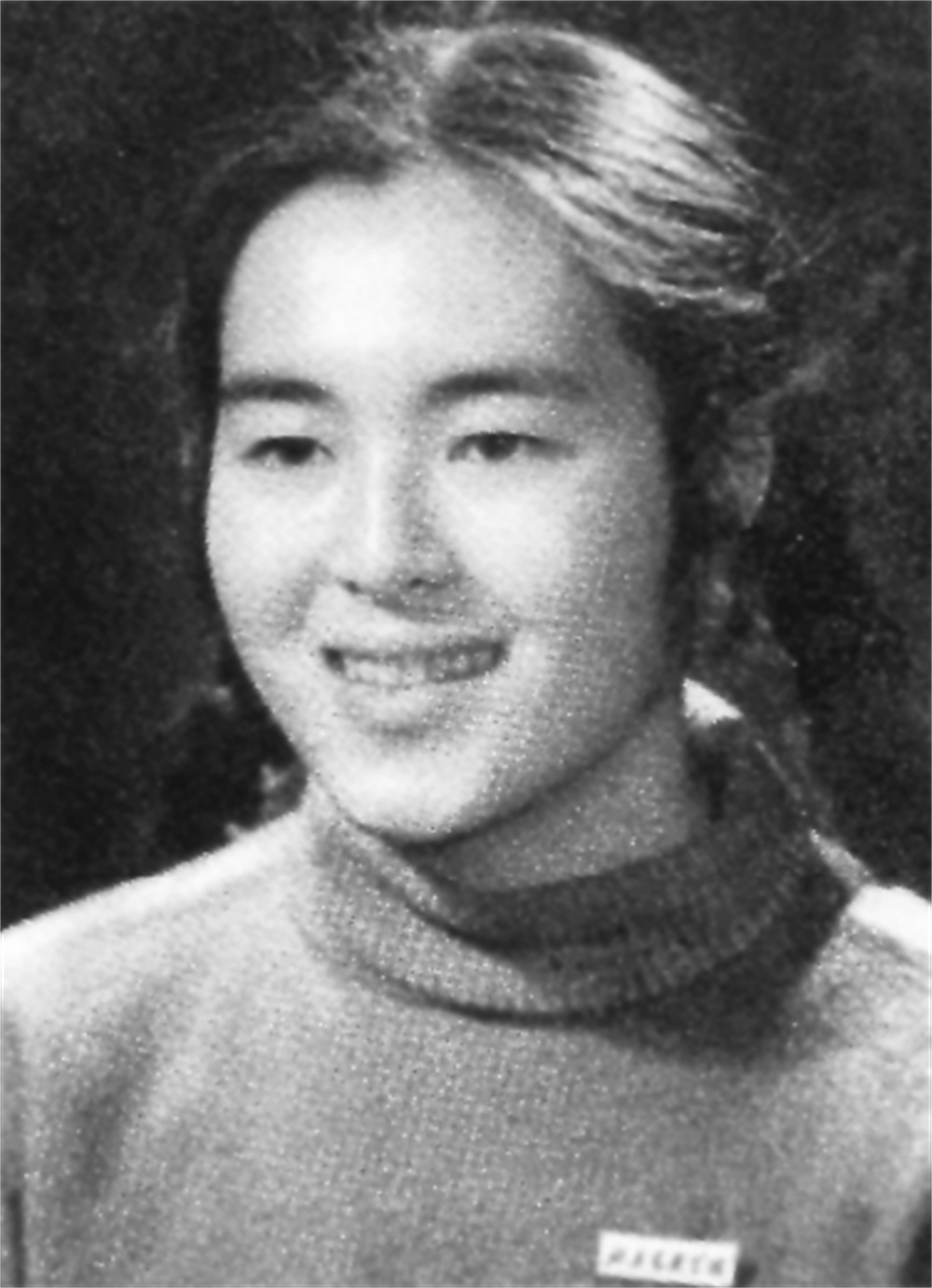
Huang Shuqin, a first-year director of Nortel's directing department.
Huang Shuqin once recalled the time when she was studying, "At that time, I always felt that I was very stupid, I couldn't speak, and I had to act in sketches, which was really boring." But her head teacher Tian Feng had told her classmates as early as that time. Assert, to say that the classmates who can become a great director in the future? Huang Shuqin.In 1964, Huang Shuqin graduated from the Film Academy and was assigned to the Shanghai Film Studio. Just as she was preparing for a grand show, the "Cultural Revolution" began, and she didn't return to the factory until 1978.
There are occasionally tasks in the middle, such as the Shanghai Film Studio directed by the Propaganda Department of the Shanghai Municipal Party Committee to make Mao Zedong's "Old Three Pieces" into an "ideological education film", which makes Huang Shuqin full of enthusiasm and endows him with creative completion; or The stage play is recorded, and it is also a rare time to raise the camera.
Until Xie Jin filmed "Ah! Cradle", it has been fifteen years since Huang Shuqin "salvaged" Huang Shuqin back to the film.
"I am grateful to him for the rest of my life. He is a savior for us. We have been in the film studio for more than ten years, and we have been married, having children and farming. It has been 15 years, and my children have all gone to primary school. Later, Huang Shuqin talked about this experience and was full of gratitude to Xie Jin.
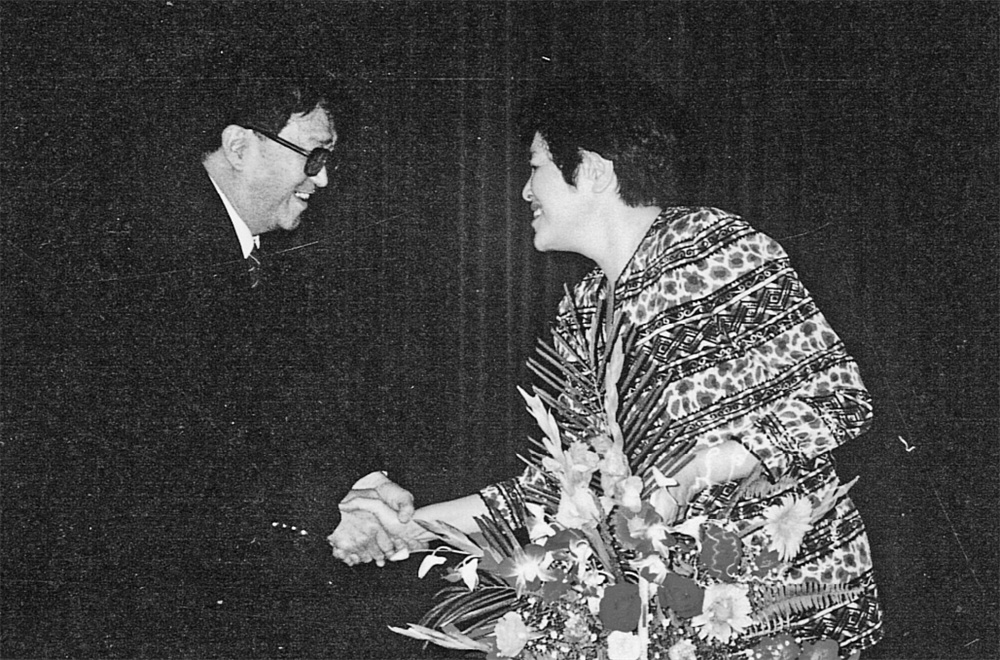
In 1998, Huang Shuqin congratulated Xie Jin on his 50th year of filming.
"Although I have a salary of 59 yuan and 5 yuan from the film studio, I have never had the opportunity to be next to the film machine. How many fifteen years does one person have?" Huang Shuqin described the feeling, as if "we are all under the well, and he suddenly gave You have a rope, tell you, hurry up and don't waste any more time. This is equivalent to a life-saving benefactor, so the mood at that time is that I will do whatever I am told, as long as I participate in the filming of the movie, as long as I watch it When you see the camera and listen to the sound of its turning, you will do anything."Huang Shuqin often joked later, saying that her film career started with "controlling donkeys". Because the important props in the film are under her control, she always leads the donkey team on the scene, running around to occupy positions, some When the donkey is disobedient, she goes to take the place for the donkey.
It's certainly an interesting talk, in fact, in "Ah! In the film "The Cradle", Huang Shuqin and another fourth-generation female director Shi Xiaohua (the director of "Ding Dong") act as assistant directors together. Shi Xiaohua is in charge of the children's part, and Huang Shuqin is in charge of the adult part.
Shi Xiaohua recalled that at that time, Huang Shuqin was still very jerky when he first joined the film crew. He was timid about many things, and at the same time full of curiosity. "Director Xie's requirements for filming are very high. She joined the group later than us. She had no experience at the beginning, and many things were unexpected. At that time, she was often anxious at the scene."
Shi Xiaohua recalled to reporters that he and Huang Shuqin used stones to grind buttons by the Yellow River for a few military uniform buttons that could not be photographed in close-up at all. In addition, I and Huang Shuqin couldn't ride a horse on the set, but they were taken away by the soldiers' horses on the set, and the two almost fell off their horses, "At that time, we were under Director Xie, and we were eagerly learning the practice of film shooting. "
Because Xie Jin had the habit of changing the script while filming, every night after work, he would ask Huang Shuqin and Shi Xiaohua to continue discussing the script for the next day, and listen to their suggestions for the play, "Huang Shuqin would also give Xie Director some of her suggestions at that time. Thoughts, from which we can also see her homework and literacy as a director."
After that, Huang Shuqin followed Xie Jin to film "The Legend of Tianyun Mountain". By this time, she was already an executive director who could be on her own. After that, the opportunity of Shanghai Film Studio was hard to wait, so she first went to the Xiaoxiang Film Studio in Hunan to shoot her debut feature film "Contemporary People". From it, you can see her insights into the people and society of her time.
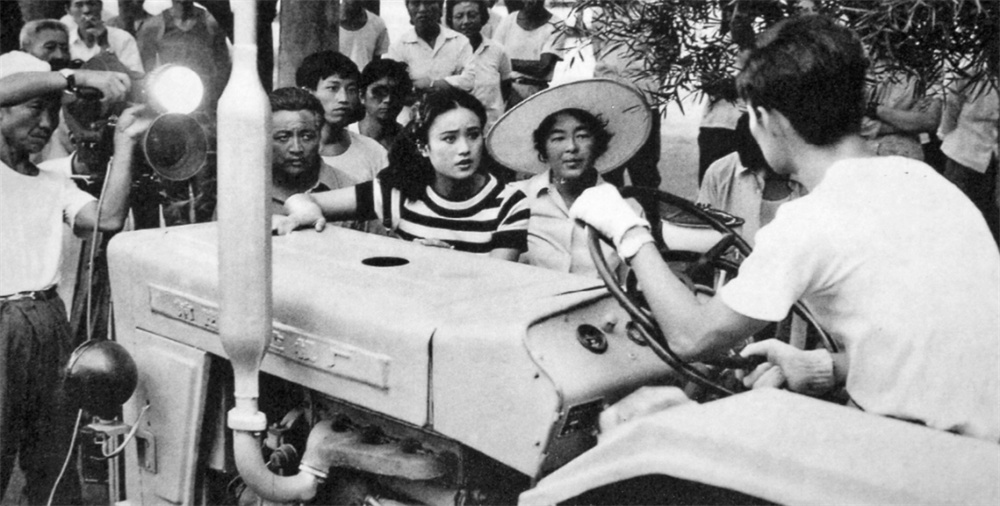
Huang Shuqin directed the filming scene of the film "Contemporary People" independently for the first time.
"Unintentional" awakening of "feminine consciousness"Director Huang Shuqin's artistic peak is undoubtedly "Human, Ghost, Love" in 1987.
"People·Ghost·Love" tells the story of Qiu Yun, who was "born to be a good actor for opera", and her mother's betrayal of her family when she was a child caused her lifelong shadow. At her father's request, Qiu Yun could only sing male roles. After joining the provincial troupe, Qiu Yun quickly became the troupe's number one female martial artist. However, whether it was an unrequited love or her husband's indifference to the family after marriage, Qiu Yun never received the protection of men from beginning to end. Only her attachment to the ghost character Zhong Kui became her lifelong obsession.
This film was once hailed by film scholar Dai Jinhua as "China's only female film". It is based on the real experience of Hebei Bangzi actress Pei Yanling and starred by herself. In the performance of multiple mirrored identities on the stage, people and roles, people are developed. Multiple dialogues with ghosts, people and self. A woman obtains identity recognition and gender complement through the help of the stage of drama and the body of a man. At the same time, Huang Shuqin also completed the metaphor of the historical fate of modern women in this film. This kind of expression was amazing in the 1980s. Whether it is the shaping of characters, the use of film techniques, or the pursuit of a high degree of aesthetics, it is the pinnacle of the fourth-generation director's art.
After the completion of "People, Ghosts, Love", she rarely praised her father Huang Zuolin for writing a congratulatory message - "It's not like it's not a play, it's not an art if it's too similar; it's a drama or an art when you realize emotion and reason."
In order to film "Human, Ghost, Love", Huang Shuqin visited Pei Yanling and followed the troupe from Shandong all the way back to Hebei. Pei Yanling also returned a high degree of trust, and every conversation went straight to her heart without reservation. During that time, Huang Shuqin watched her perform every night, from makeup to makeup removal, and the two slept on the same kang.
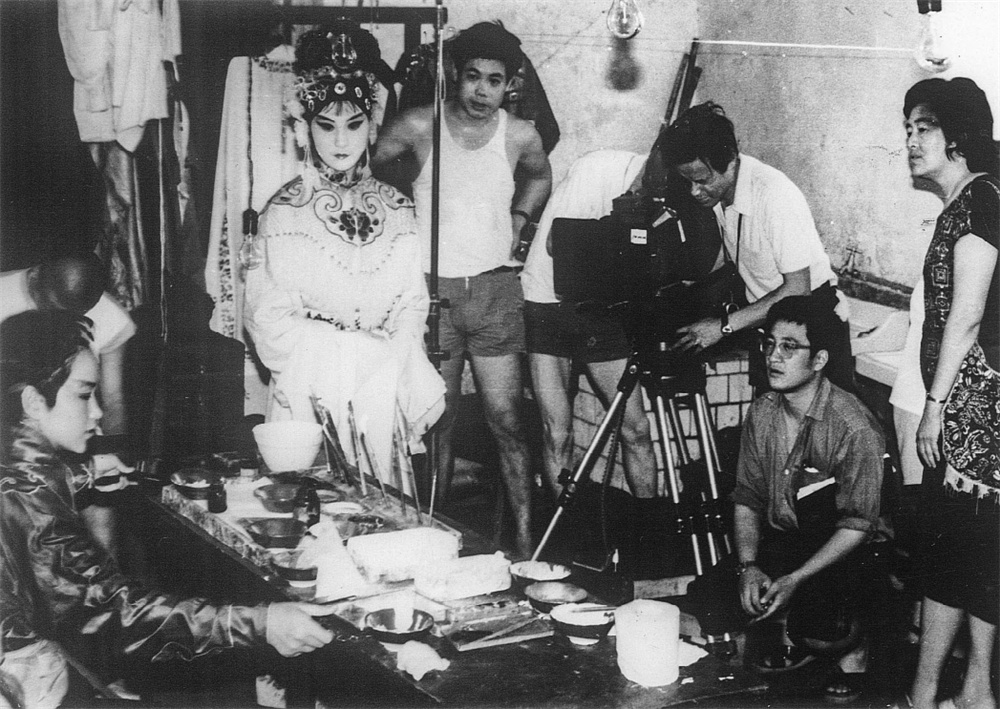
Huang Shuqin (right) at the filming site of "People, Ghosts, Love".
Later, the academic circles used this film to discuss the writing of women's perspectives in Chinese video narratives. As a representative of female directors, Huang Shuqin was often asked related questions. She always said that there is no such "consciousness first" subjectively. She even got a feedback from her son, "You women's movies...""Many people asked me if there was a female consciousness when the film was made, but I never thought about it. The history of female consciousness in the West is very long, and we don't have this word here at all, but this is a film I actively want to make, and I have it subconsciously. Yes. For example, I have never expressed a woman's point of view, but I know very well that I am looking at this person from a woman's point of view and expressing this person. People will not understand what I say, or say I can't explain it, I know it in my heart, so I express it through a movie." Huang Shuqin said, "The filming of this movie was very enjoyable, and it is worthwhile to have such a hearty expression in life."
Later, Huang Shuqin analyzed by himself, maybe because the family has 4 girls and 1 younger brother since childhood, he is the eldest, he has to take care of the feelings of his younger siblings, and he has studied in a girls' middle school for 6 years, and there is no threat from boys. He has experienced that girls are very open and wanton growth. In her opinion, she "has a unique feeling for the world of women. "People, Ghosts and Love" excavated my female feelings."
Among the works he directed, 6 films, including "Long Live Youth", "People·Ghost·Love", "Painted Soul", "Hi, Frank", and TV movies "Red Pink" and "Village Prostitute", are all based on women. Huang Shuqin once said: "In order to make a movie with personality, it must be integrated into the director's self. This is first of all gender, and then there is a person in the gender. If the 'gender' is lost, how can there be a real personality?"
Another factor that contributed to the success of "Human, Ghost, Love" was the help of Huang Shuqin's lover Zheng Changfu. Zheng Changfu is a film artist and a lover of opera. The mask paintings in the title of the film are all his works. "My husband painted a special image of Zhong Kui. He loves opera very much, and he has the concept of a camera lens, which means he created his paintings in the way of a movie camera. The picture of Zhong Kui marrying his sister, I already had it when I saw reportage, it was two The faces of the individuals are put together, one man and one woman. Later, I used this painting as the beginning of the film. At that time, I read the text and knew that there was Pei Yanling, and then I looked up and saw that the wall was full of his words, and I had a very intuitive image. In fact, I don't know anything about the drama. He played a great role in the film. We are in the same group every day, and he is the greatest help to me. "
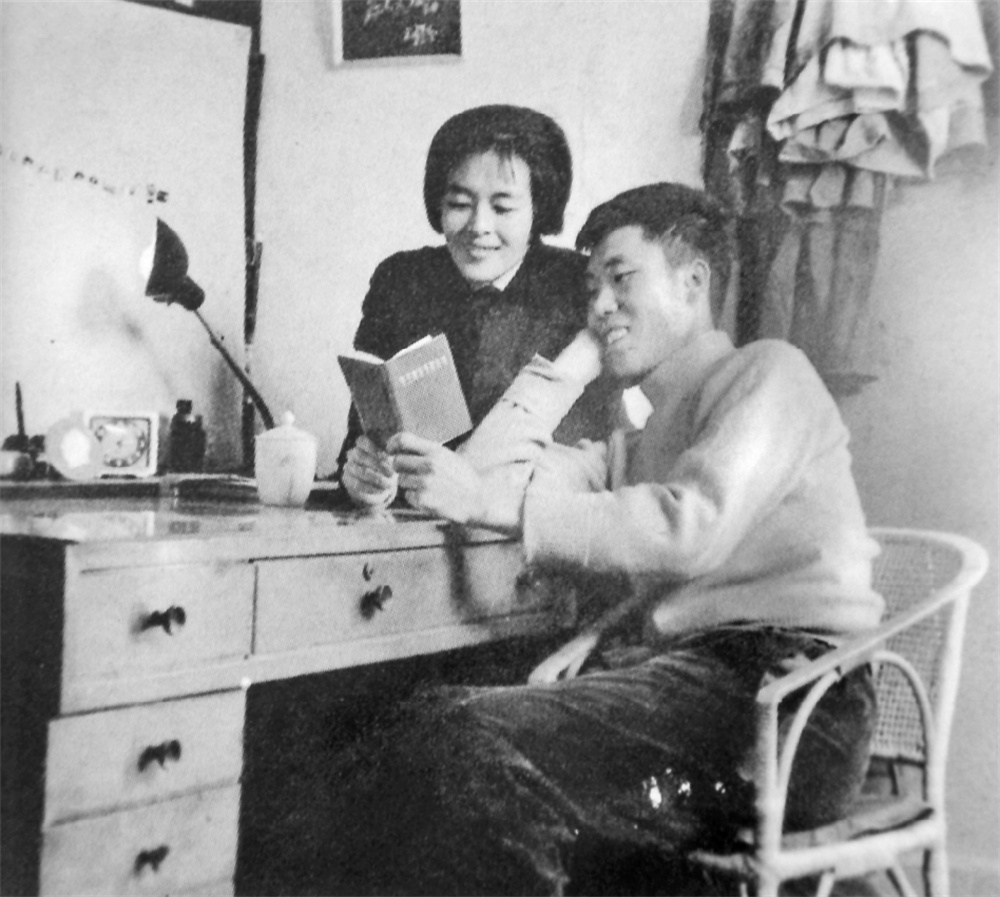
Huang Shuqin and Zheng Changfu are newly married Yaner
Later, when Huang Shuqin tried to draw a picture of the spiritual life of female artists in "Painting the Soul", she had to leave regrets in the face of a more complicated commercial film situation.Produced by Zhang Yimou and starring Gong Li and Er Dongsheng, this film tells the legendary life of Pan Yuliang, a female painter in the Republic of China. From orphans, young prostitutes, concubines to world-renowned art masters, Pan Yuliang's life is full of possibilities. At that time, people were expecting a director with the most female consciousness, together with an actress with strong female charm, to tell the life of such a legendary woman. At that time, Gong Li was filming a film not directed by Zhang Yimou for the first time, but unfortunately the large-scale breakthrough performance was deleted.
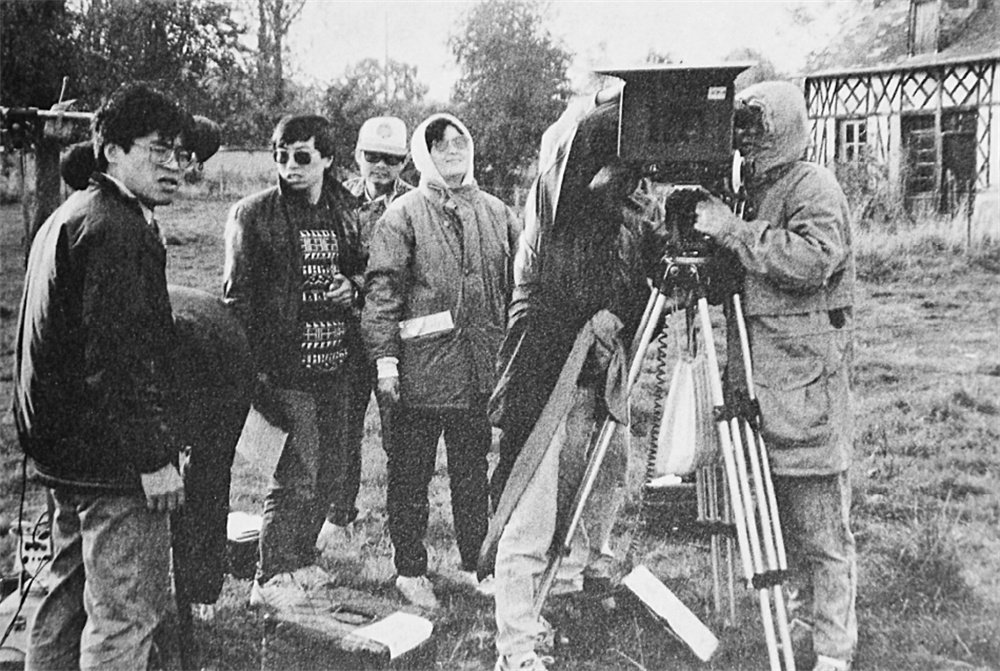
Huang Shuqin filming "Painting Soul" in a French farm
In today's opinion, this is still a sincere and rare female expression in the history of Chinese film, but Huang Shuqin later expressed his regret in an interview - "I know very well that "Painted Soul" does not explain this story from a female standpoint Yes, in that kind of attempt, only "Human, Ghost, Love" was once, and I fell into the mode of ordinary commercial films. The male position is the public position, which is definitely two different from the female perspective. As a female director, which one do you choose? Very decisive and firm, but I understand that it is very swaying to compromise this position again. I am very clear, but I still can't turn around in practice, and my expression is very contradictory. The method changed, and the result was a bit nondescript at the end. If it was a male director who came to make commercial films, it would be better, and it would be more clear. Therefore, going in the market and expressing the humanistic spirit are actually two directions, and the middle way cannot be taken. , Whoever walks will fail. From what I know now, everyone is working hard, there is no personal fault, and there was no experience and judgment at that time. If you want to make a commercial film, it is a commercial film, if you want to make a cultural film, it is a cultural film. Both will lose.”"Besieged" gathers 72 sages and "Debt" hits the ratings of "Three Kingdoms"
The fifth-generation female director Peng Xiaolian once talked about the impression Huang Shuqin gave her: she feels very powerful and powerful. As soon as she stood there, the center point would go to her.
As a director, the number of works in her life is not large, but most of them have stayed and stood the test of time. For ordinary viewers, her TV series may have a deeper impression and memory.
The TV series "Besieged City" has been on the air for more than 30 years, and the Douban score is 9.3 points. There are still people in the comments who are like discovering treasures, praising the charm of this old drama. Qian Zhongshu's original work is of course the most solid foundation, and Huang Shuqin formed such a big-name dream team, and in the 10 episodes, he almost insisted on shooting this TV series with film-like standards, which is also the reason. The reason why this work has become a classic.
Huang Shuqin's family background coincides with the situation of the protagonist in the novel "Besieged City". After Huang Zuolin and his wife graduated from Cambridge, England, they went to France to take a boat back to Tianjin. After the funeral of their grandfather, they went to Teaching in Sichuan has been bumpy all the way, and finally returned to Shanghai... The time and route are almost the same as Fang Hongjian in the story. She can fully feel the mental state of "floating wherever she goes". Therefore, when it comes to filming "Besieged City", Huang Shuqin feels that he is "the most suitable".
"The style of "Besieged City" is very special. Mr. Qian's perspective on life, life, and the people and things around him is very unique and has a strong cultural character. Therefore, there are two key points in making this play well, one is The actors should be found well; the second is the environment and atmosphere of the 1930s, and they should be well presented. There are seventy-four characters in the whole play, and each of them has their own characteristics, and some are only A few shots should not be neglected. The novel is written very smart and witty, and very knowledgeable. This knowledge is difficult to express, but humor and wit should be shown. Otherwise, it will be a loss." Huang Shuqin once expressed her plan for the work.
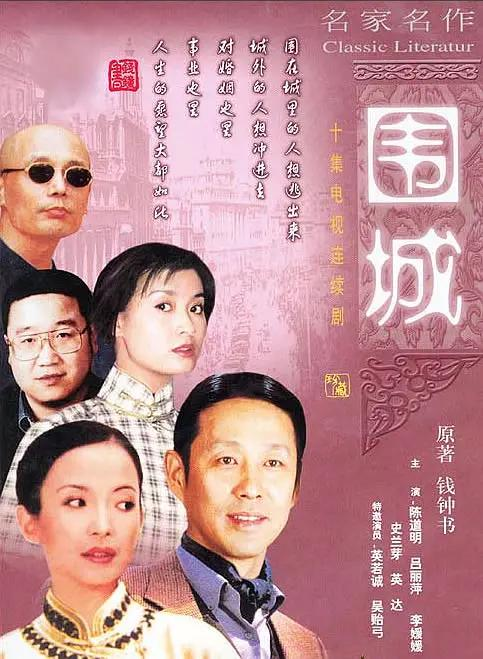
"Siege" poster
There are 72 characters with names and surnames in "Besieged City", and these characters are so vivid that none of them can be careless. She carefully considered each character and made an invitation with the utmost sincerity. Chen Daoming refused at first, she tirelessly visited the door four times, and even publicly said to Chen Daoming: "If you don't play "Besieged City", I will not shoot."At that time, "The Story of the Editorial Department" had not yet aired, and Ge You was still a little-known rookie actor. Yingda, the second male lead, took Ge You to audition together. When Huang Shuqin saw the image of this sharp-nosed monkey, he played Li Meiting, who was slick, greedy for women, but had a heart and no guts.
The heroine Lv Liping recalled that during the filming of "Besieged City", Huang Shuqin had a car accident. "My legs hurt! It was uncomfortable to watch. Later, she endured the pain and was in a wheelchair and using a cane. The scene was filmed. She has been in Persistence, that spirit really moved me.”
Huang Shuqin calls 72 characters 72 sages, many of which are inconspicuous and small characters with only a few scenes, and the actors are also big names. Even masters such as Ying Ruocheng, Wu Yigong, and Sha Yexin all appeared in this TV series. In the process of gathering the actors, Huang Shuqin said, "I think this show is very fun, and when I call them, they all come. I am also very happy during the filming. Often, after a scene is filmed, everyone applauds themselves."
The director's general requirements for these 72 sages are that they want to be outstanding, and "the performance needs to have a sense of humor", and the actors need to have a spirit of self-deprecating self-deprecation, ""Besieged City" is a smart person who doesn't pretend to be wise, and exposes a self-conscious person who pretends to be wise. One of the works." She asked the actors, "Don't stress, just relax!"
Lv Liping said, "I still think that the entire filming crew of "Besieged City" is top-notch, and everyone is top-notch. Now it's difficult to get these people together, but at that time we were all because of director Huang Shuqin (gathered to the top). together), she's so charming!"
In this way, in line with the policy of "TV format, novel capacity, and film shooting method", Huang Shuqin filmed 9 chapters of the original book with a capacity of 10 episodes on the set using a dual-camera filming method, which is almost five films. Film specifications to shoot. One episode was shot in 10 days. Later, Zheng Dasheng sighed when he heard his mother talk about this experience. This is quite extravagant for today's TV series.
Later, after the filming of "Besieged City", producer Sun Xiongfei brought the finished film to Mr. Qian Zhongshu and Yang Jiang to have a look. Mr. Qian Zhongshu wrote a letter saying that the family of three "took half a night and half a day to finish watching the video"; Yang Jiang wrote in small print at the bottom of the letter: "We can watch the video and eat and sleep!"
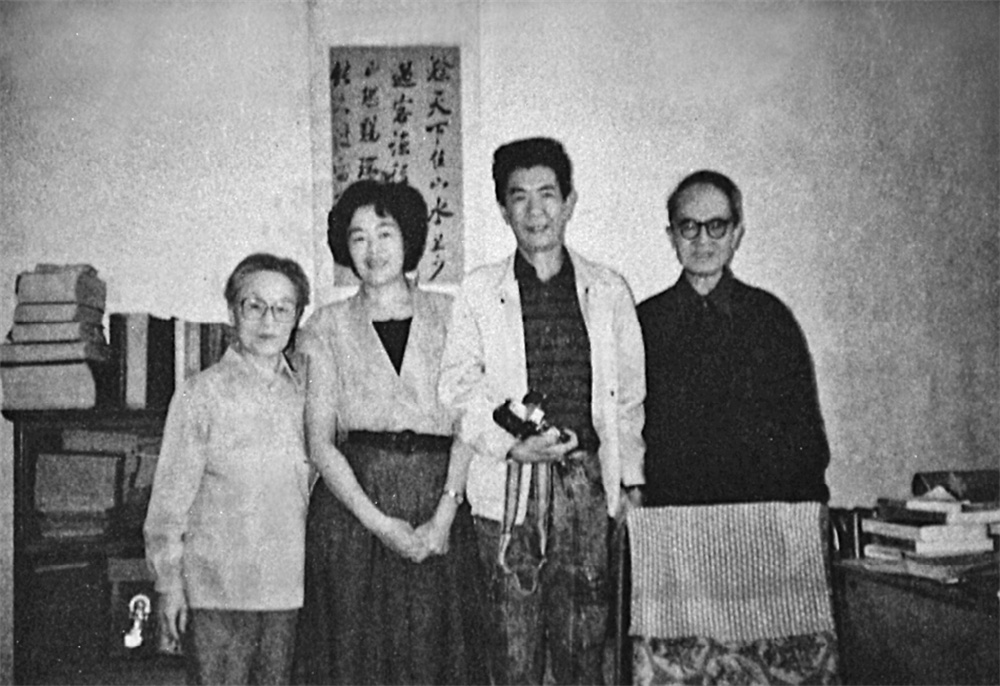
Huang Shuqin and Sun Xiongfei visited Qian Zhongshu, Yang Jiang and his wife.
Another work by Huang Shuqin that has to be mentioned is the 20-episode TV series "Debt of Evil", a family ethics TV series filmed by Shanghai TV in 1994. Based on the novel of the same name by writer Ye Xin, it tells the story of five children from Xishuangbanna. The experience of going to Shanghai to find his biological parents and the educated youth who returned to Shanghai many years ago. In 1995, "Debt of Evil" was broadcast on Shanghai TV in Shanghai language, setting a super high viewership rate of 42.62%. It is said that under the impact of "Romance of the Three Kingdoms", which was broadcast at the same time, the ratings in Shanghai dropped from 15% to 15%. 8.6%.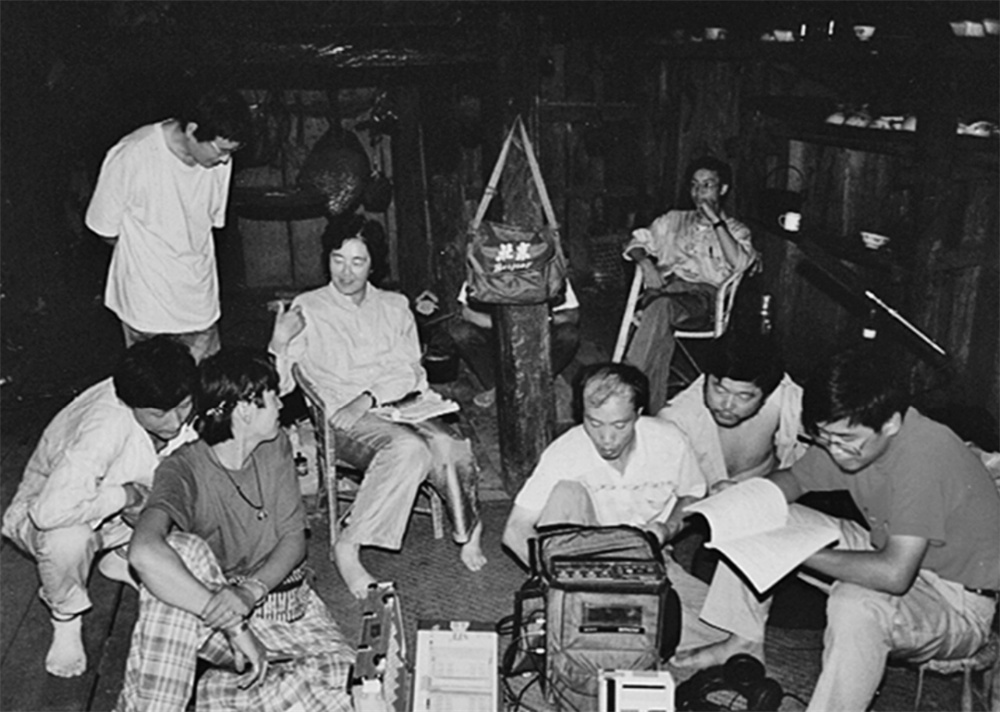
Huang Shuqin directed the TV series "Debt".
In Huang Shuqin's artistic career, there have also been many attempts to get close to the audience. She once said in an interview, "I don't like being alone, I really hope to have an audience. I am willing to make films for every level of audience, but I hope that there will be a distribution I want these films to reach the audience at the level I want. I hope to shoot for citizens, I hope to shoot for intellectuals, I hope to shoot for experienced people, and I hope to shoot for young people...all hope."In 2017, the Shanghai Film Association held a birthday party for Huang Shuqin. Huang Shuqin, who was already suffering from Alzheimer's disease at the time, could not be present at the scene. Zhang Jianya, the former chairman of the Shanghai Film Association and a fifth-generation director, sighed, "Huang Shuqin is really a very talented director. It's a pity for her. Otherwise, with her ability, she can still make very good works. In today’s view, the works also have a high appreciation value.”
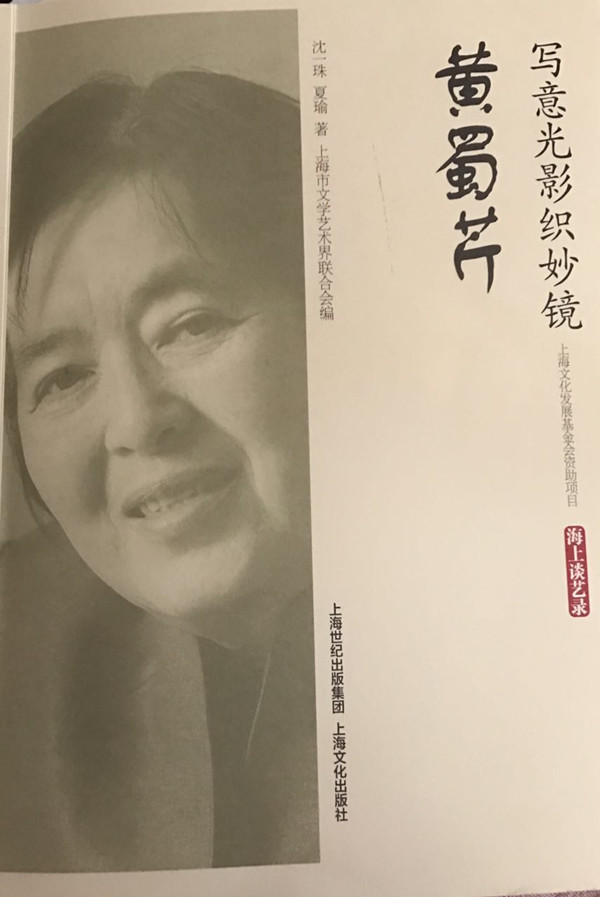
The old photo of this article is from the book series "Freehand Light and Shadow Weaving Wonderful Mirror Huang Shuqin" (written by Shen Yizhu and Xia Yu, published by Shanghai Culture Publishing House in 2017), which is a series of "Arts on the Sea" series organized by the Shanghai Federation of Literary and Art Circles.